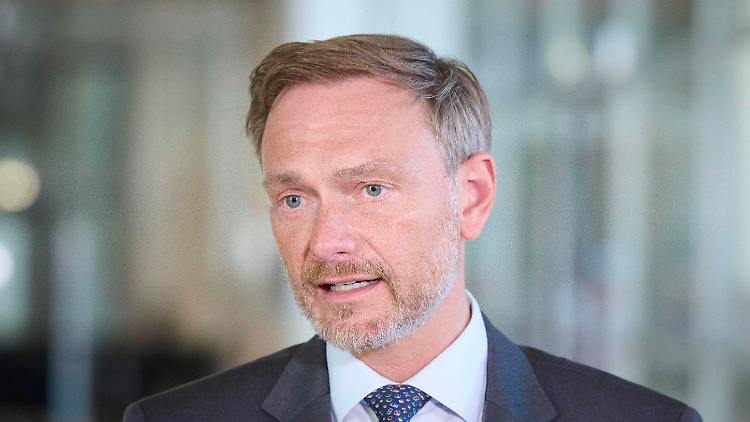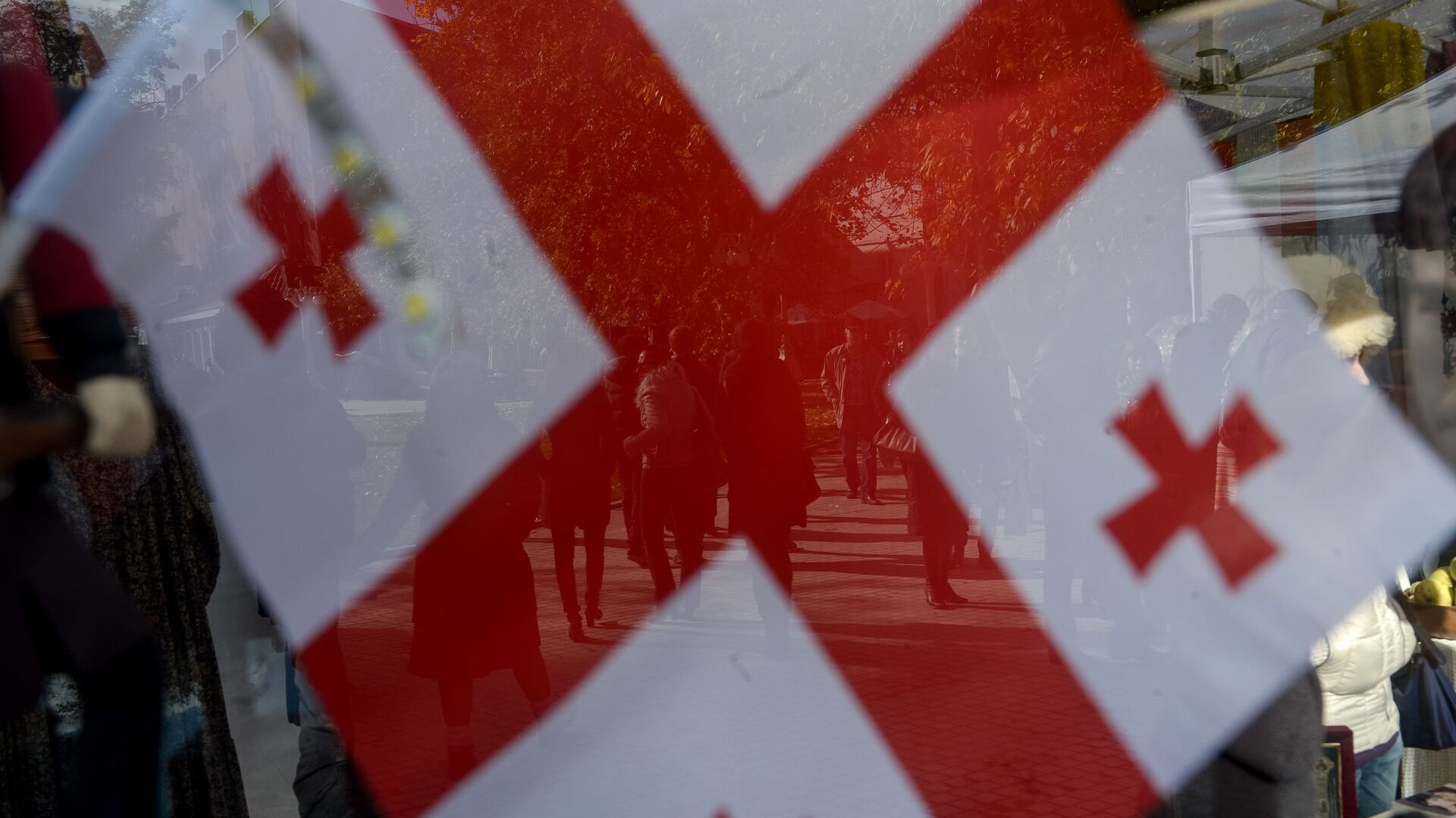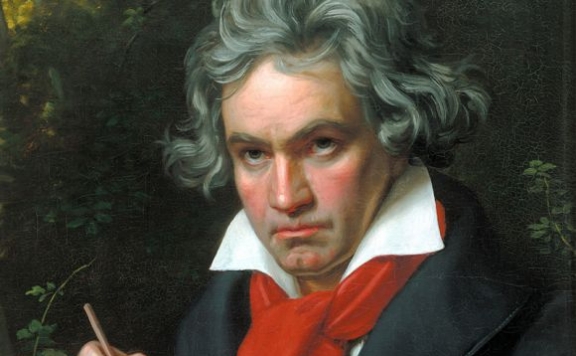German online news site NTV.de interviews Federal Finance Minister Christian Lindner
After his wedding, German Finance Minister Christian Lindner took a little vacation, but now he’s back with a clear message for his coalition partners: He rejects the demand to suspend the debt brake: “Precisely because we have inflation, we have to comply with the debt brake. Lindner rejects a rapid increase in the Hartz IV standard rates as well as a sanction-free citizen’s income. And: “We shouldn’t be too choosy in this emergency situation,” he says in an interview with ntv.de about fracking and nuclear power plant lifetimes.
Lindner doesn’t see that a lifetime extension would be difficult for the SPD and the Greens to digest: “On the contrary, I see a temporary lifetime extension as a small step, because the Social Democrats and the Greens do share the common goal of having a secure energy supply that is as cheap as possible and climate-friendly.”
ntv.de: The dominant topic in Germany right now is the question: Will Russia deliver gas through Nord Stream 1 again on Thursday? What is your assessment?
Christian Lindner: Any assessment would be speculative. I hope that Russia will continue to supply gas to the contractually agreed extent.
- Vacancies warning Lower Rhine level makes fuel more expensive
- US astronaut Buzz Aldrin put the jacket he wore during the Moon landing up for sale
- Release date given for budget-friendly OnePlus flagship
The debate is very much about what effects a gas cut-off by the Kremlin could have – there are warnings of severe production losses, deep recession, ice-cold homes. Most of all, there is talk about what Putin might do to us. Doesn’t this make him stronger than he is and Germany weaker than it is?
We are not defenseless, nor are we the objects of fateful developments, but we are acting. In the federal budget, funds are available for new LNG terminals, which Germany has decided to build after not being able to do so for many years. We are also filling the gas storage facilities with funds from the federal budget, we are stabilizing companies in the energy sector so that an uncontrollable economic situation does not arise. And we have reserves that we haven’t even finally decided on in our current energy policy concept.
You mean nuclear power plants?
Not only. Another example is the search for deposits of our own gas and oil reserves in Europe. And yes, there is also the reserve option of using nuclear power for longer.
Fracking and longer operating times are rejected by the SPD and the Greens.
We shouldn’t be too picky in this emergency situation. In the long term, nuclear power in its current form of use is not an economically viable option. In the short and medium term, however, a temporary extension of operating lives seriously belongs on the table.
And fracking?
Fracking everywhere is certainly not an option for us. But exploiting deposits in the North Sea makes sense and is feasible. There will also be situations on land where the use of unconventional gas deposits is responsible. That’s exactly the situation we’re in now: weighing the pros and cons and doing what’s responsible.
FDP parliamentary group leader Christian Dürr has already ruled out agreeing to a speed limit in exchange for a lifetime extension. He spoke of “horse trading.” Wouldn’t give and take make sense after all if, as Economics Minister Robert Habeck says, every kilowatt hour counts?
There is a difference. In the case of electricity supply, the state, together with industry, has a duty to work against shortages. In the current situation, it’s foolish to use gas to generate electricity. We must use it where it is urgently needed: in private households, in social institutions such as hospitals to heat them, in industry for production processes that cannot do without gas. We currently have a high oil price, but no oil shortage. To conflate these two completely different issues would just be political bazaar business. It doesn’t do justice to the seriousness of the situation.
You had originally called for a debate on extending the lifetimes. Have you since gone further and called for a lifetime extension?
I’m calling for facts to be put on the table. How is our power supply secured without gas? How will the CO2 emissions of the energy industry in Germany develop if we now fixate anew on lignite? What capacity would the three remaining nuclear power plants have to contribute to our energy supply – in the next few months, in 2023 and possibly beyond? Would there be new fuel rods that could be procured? What is the technical condition of the nuclear power plants? We would have to examine this together now in order to then come to a decision as to whether extending the operating lives is a sensible and realistic option. For me, there is a lot to suggest that it is.
You rejected nuclear power as recently as January.
In the long term, nuclear power is more expensive than solar and offshore wind energy. Moreover, there is no social consensus for nuclear power. The power plants cannot be insured in the market; you always need the state. This is a clear regulatory signal that this is not an energy source that should be relied on in the long term. But in January, we still assumed that we could reach the age of freedom energies via the bridge gas. That has become more difficult. I’m an optimistic person, but I’m not sure that by 2024 we’ll have sufficient gas imports beyond Russia to be worry-free. Maybe it will take a little longer.
For the SPD and the Greens, a lifetime extension would be a huge leap over the shadows.
It’s about acknowledging realities. We have done that, too. I have taken out 100 billion euros in loans for the special assets of the Bundeswehr because the backlog in equipment would otherwise be impossible to make up. On the contrary, I see a temporary extension of the operating lives of nuclear power plants as a small step, because the Social Democrats and the Greens share the common goal of having a secure energy supply that is as cheap as possible and climate-friendly. For me, what needs to be explained is why lignite-fired power plants are being ramped up to the maximum instead of operating safe, CO2-free nuclear power plants for a very short time longer.
Because of high energy prices, SPD chairwoman Saskia Esken wants to suspend the debt brake again. Why do you oppose this?
A look at the constitution shows that it is not up to political discretion whether or not to comply with the debt brake. Inflation or a recession are not reasons to lift the debt brake; that only applies to catastrophic conditions that lie outside the state’s ability to act. And it is precisely because we have inflation that we must comply with the debt brake: The state must no longer reinforce price trends with its financial firepower. Moreover, we can no longer afford debt because the state itself now has high interest burdens. For next year, I have to plan on 30 billion euros in interest costs. In 2021, it was 4 billion euros. If we continue to rely on debt, in a few years we will have to cut back in the budget or raise taxes just to service past debts.
What do you think of the proposal to cut VAT on basic foodstuffs?
This is a measure that has a very broad impact. It is not targeted and we cannot afford it, so I strongly advise against it. We need to provide targeted relief for people who are particularly affected by price trends. We need to ensure that salary increases that only compensate for the loss of purchasing power do not lead to a higher tax burden – the so-called cold progression.
Does there have to be a gas price cap or a gas price brake?
We buy gas on the world market. How is that going to work if we put a price cap in place? Who pays the difference to the world market price?
Could the tank rebate be a model?
No. The background to the tank rebate is that the federal government takes in more via the value-added tax as a result of rising gasoline prices driven by the world market. As finance minister, I said: I don’t want this additional revenue. Incidentally, the fuel rebate only benefits those who have to bear the burden of the higher value-added tax.
The SPD and the Greens have proposed that private customers get a deferral on their electricity and gas bills. At the same time, gas suppliers will have to be bailed out by the state. Isn’t there no alternative to such an electricity and gas moratorium?
Above all, it is not targeted. The question is: Are we only protecting those who really can’t afford the high prices or also those who could afford it and are hiding behind such a moratorium? That’s why I think this proposal is extremely worthy of discussion.
Are you discussing this in the traffic light coalition?
There is a public debate about it, and the Minister of Justice …
… Your party colleague Marco Buschmann…
… has raised precisely these concerns. There are many sweeping ideas that are being put forward. But the goal must be to help those who are overwhelmed with the current situation.
But with the fuel rebate and the 9-euro ticket, the coalition has applied the watering can principle.
These measures are temporary and also serve to curb inflation overall.
CSU leader Markus Söder has said that helping the people in Ukraine is important, “but of course we also have to take care of our population first and foremost.” Is Germany on the way to becoming sanctions-weary?
In Ukraine, our security and our freedom are also being defended. We have a civilizational obligation to stand in solidarity with Ukraine. And we have our own interest in ensuring that international law and security in Europe are upheld. In this respect, I am not convinced by the connection that Markus Söder makes. On the other hand, we must of course ensure that social peace is maintained and that there are good economic prospects. But that applies regardless of the support for Ukraine. These are things that we have to take care of anyway.
Isn’t a rapid adjustment of the Hartz IV standard rates overdue in view of inflation, even before the regular increase on January 1?
In the case of recipients of basic welfare benefits, the costs of housing are covered. This means that the situation is different than for a family with a low income. They have to pay the housing costs themselves. This year, we have also granted one-off payments for recipients of basic benefits, which I believe will cushion the greatest social hardships. We are keeping a close eye on the situation. On January 1, there will be a regular increase in the standard rate, which must of course reflect inflation.
The suspension of Hartz IV sanctions, which is to apply for one year, is the precursor to the citizen’s income planned by the coalition. Will this suspension be adopted for the citizen’s income?
Absolutely not. With the citizen’s income, there must be sanctions for breaches of duty. This is double solidarity: On the one hand, we as a society show solidarity with people who are currently unable to work. On the other hand, there must be a quid pro quo at the same time: one’s own efforts to make use of this solidarity of society only as long and as far as it is necessary. Anyone who avoids work, for example because he or she does not keep appointments, must be able to be shown a limit by means of sanctions. Incidentally, I am not in favor of increasing the standard rates across the board, beyond adjusting them for inflation. Instead, we need to improve the opportunities to earn additional income. The citizen’s income must not become an unconditional basic income.
Prices for energy and food continue to rise. Yet another relief package is not due until next year. Why?
This year we have approved more than 30 billion euros in relief and social benefits – from retroactive tax cuts to the gasoline rebate to the abolition of the EEG surcharge. Of these 30 billion euros, a lot has yet to reach the people. For example, the flat-rate energy tax will be paid out in September – for a family of four with two working people, that could be more than 1,000 euros. There are no further reserves in the federal budget for this year. Anyone who wants further spending in the middle of the budget year must say where less is to be spent in return.
Habeck said that because of the sharp rise in gas prices, further relief for middle and low incomes was inevitable in the coming year. He is sure that the Ministry of Finance will make provisions for this. And are you already taking precautions?
We have already provided enormous relief. We have to continually shoulder additional expenses, for example, when it comes to stabilizing companies in the energy industry. Anyone who thinks there is still a hidden treasure chest somewhere in the federal budget is mistaken. I examine every additional billion with the utmost care. Anyone who wants to spend more money this year must also say where the money is to come from. Simply calling for higher borrowing is something I will not be able to accept in the interests of the country. The days when we acted according to the bazooka principle during the pandemic are over. We are also experiencing a turning point economically.
Jan Gänger and Hubertus Volmer spoke with Christian Lindner





